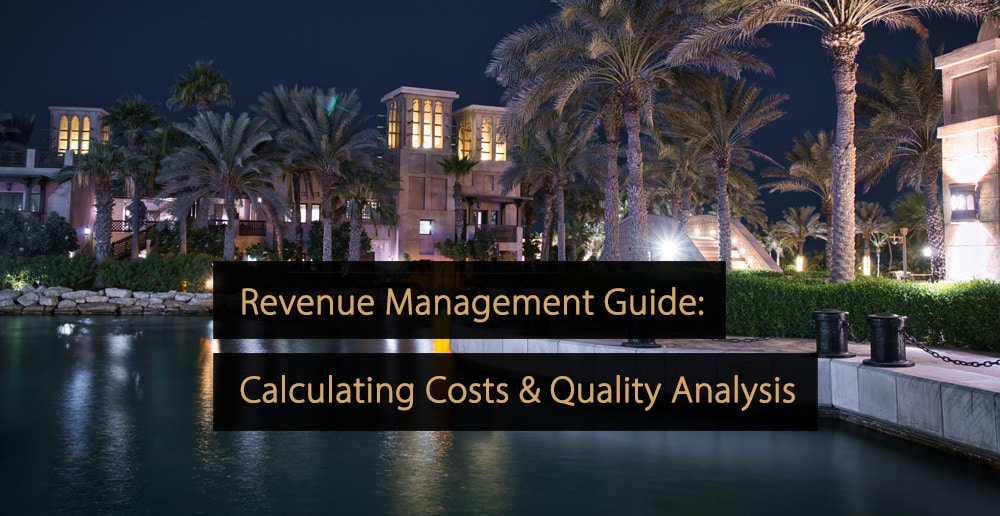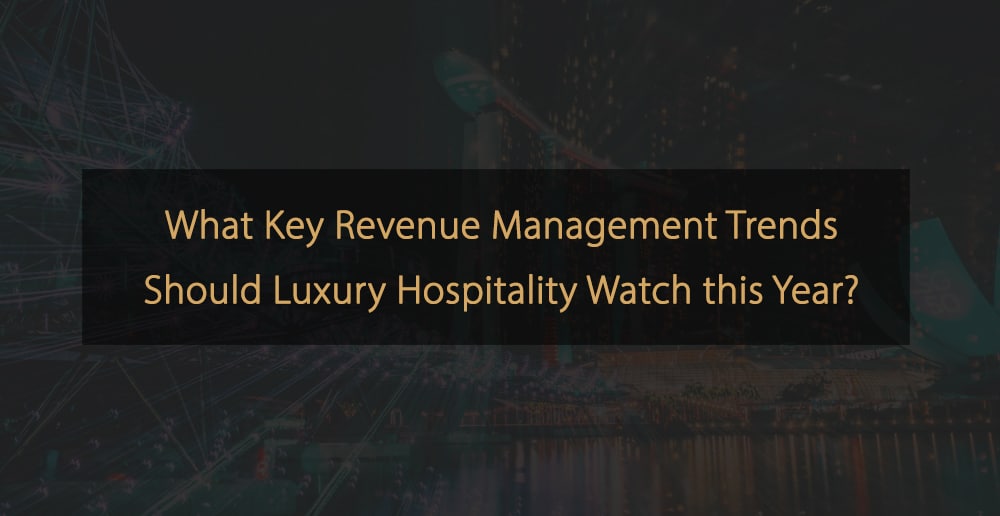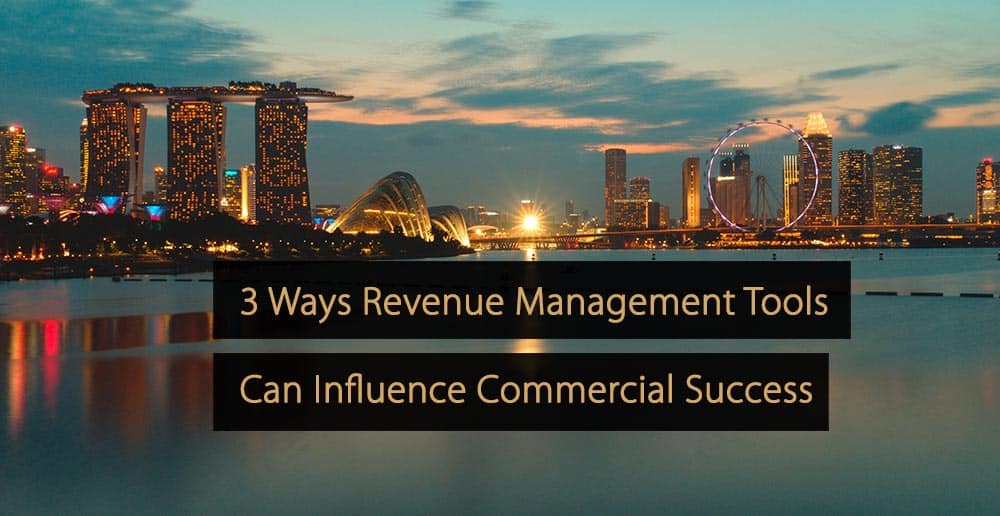Question for Our Revenue Management Expert Panel:
What happens if hotel owners do not listen to revenue managers during budget preparations? What advice would you give to an RM team when asked to justify their budget? (Question by Connor Vanderholm)
Industry Expert Panel
Our Industry Expert Panel exists out of professionals within the hospitality & travel Industry. They have comprehensive and detailed knowledge, experience in practice or management and are forward-thinking. They are answering questions about the state of the industry. They share their insights on topics like revenue management, marketing, operations, technology and discuss the latest trends.
Our Revenue Management Expert Panel
- Connor Vanderholm – CEO, Topline
- Tanya Hadwick – Group Revenue & Yield Leader, SunSwept Resorts
- Heiko Rieder – Vice President Business Development, Hirmer Hospitality and Travel Charme Hotels
- Diego Fernández Pérez De Ponga – Director of Revenue Management, Palladium Hotel Group
- Damiano Zennaro – Founder, DZ Consulting
- Massimiliano Terzulli – Revenue Management Consultant, Franco Grasso Revenue Team
- Fabian Bartnick – Founder, Infinito
- Krunal Shah – Director of Revenue Management, The Biltmore Mayfair, LXR Hotels & Resorts
- Pablo Torres – Director, TEDUKA
- Nikolas Hall – Owner, N. Hall Consulting
- Silvia Cantarella – Revenue Management Consultant, Revenue Acrobats
- Ask Our Panel a Question
- Join Our Expert Panel
“As we progress through a poorly budgeted year, ownership goes through the 7 stages of grief. While traversing through the first four stages (Shock/Denial, Pain/Guilt, Anger/Bargaining, and Depression) revenue managers often receive the brunt of these emotions from ownership. In many cases the downward pressure on an RM to perform is untenable and a hotel will lose a good employee, on bad terms. This issue could have been avoided by setting realistic budgets that target accuracy rather than lofty aspirations.
The bottom line: listen to your RM, they probably understand your revenue outlook better than you do. After all, they are the ones looking at it every day.”
“This depends on what the owners are looking for – do they want unrealistic goals or tough targets? Have we openly discussed all of the market conditions, analysed the trends, and ensured we haven’t lost them in a fog of jargon? Have we ensured that they are kept abreast of external factors impacting our figures?
In honesty, to make a strong case, we have to know our audience (insights could be handy here if you don’t spend a lot of time with them), be able to stand by our figures, explain the rationale and communicate any key assumptions or scenarios, i.e., island resort impact of airlift changes, highlight the key insights, clear action items on how to achieve, and then have an answer for the what-if scenarios, etc.”
“If hotel owners or members of the management board do not listen to revenue managers (RMs) during budget preparations for the upcoming year, it is highly likely that unrealistic revenue targets as well as marketing costs will be set. In that case, it is important to manage stakeholders’ expectations and be very transparent with the risk assessment.
To prevent this from happening Revenue Managers should present budget recommendations with a data-driven approach and show concrete evidence or case studies consisting of historical data, competitive pricing, scenario planning and market trends. In order to gain owner buy-in it is also important to educate and encourage them in an open dialogue about the ongoing revenue performance and latest trends. An aligned set of KPIs will simplify the monitoring of the agreed strategy.”
“Preparing the budget is one of the most important times of the year, and it marks the start of the hotel’s strategy. We need to keep in mind that the budget should be the action plan the hotel follows, like a statement of what we plan to do.
If the revenue manager is not involved we will have some key problems:
A) Misaligned Budgets: If the document doesn’t include the revenue manager’s vision, the budgets might not match the real market, leading to goals that are not realistic or not enough money for important areas.
B) Missed Market Trends: Revenue managers know about market trends and what customers do; ignoring their ideas can lead to missing chances or not seeing problems.
Advice for Revenue Managers:
Some advice for revenue managers would be to work on their public speaking and communication skills. This is very important because selling your ideas and vision well often depends on how you present them. Many revenue managers might find it hard to share their strategies in a convincing way because they lack these skills. By getting better at this, they can more effectively support their ideas and plans.”
“Budget projections in many cases might be more “aspirational” and sometimes even “emotional” than realistic. The duty of Revenue Managers is to question budgets by recommending data-driven strategies and making their own “forecast”. However today this is not enough… On top of the data Revenue Managers have to support their view, the winning game is to influence your audience.
To do so you need to focus on some key “soft” skills like a great ability to explain complex situations in a simple and clear manner, applying data storytelling techniques when showing data, using an effective way of data visualisation, deeply understanding your stakeholders, and acting as a strategic team leader.”
“In medium and large properties that have a revenue manager and make the budget in the last quarter of the year, it is essential to listen to the revenue manager and understand their vision of what the trend will be for the following year. The revenue manager is the person who reads the data daily and who has been trained to interpret that data correctly and strategically.
For example, a revenue manager knows how much the incidence of a cost should not be read in an absolute way but relatively, basically how much that cost has been instrumental to generating revenues. They can understand better than others how certain costs can be optimised, and how certain revenues in certain departments can be increased. They know how to read the market and predict better than anyone else what the trend of demand could be.
Essentially, they are the ones who can make cost and revenue projections better than anyone else, so not listening to the revenue manager would be a fatal mistake.”
“There are a few things to consider here:
- There is always a number, so know it. There is certainly room to manoeuvre, but there is still a number somewhere.
- Plant a seed early. Start talking trends, etc., even before budget season comes.
- Your H2 forecast determines your budget success.
- Guide the audience to the items that are outliers and focus on those.
- Above all: Know your audience.”
“Revenue Management is the key to hoteliers. It allows them to maximise revenues and yields using smart tech and data analysis. Good budgeting is always a first step for rate management. Growth according to market conditions will be based on the previous year’s data. However, increasing revenues by a set percentage without the intervention of Revenue Managers leads to disaster as many factors need to be taken into consideration which are available with the revenue team. Aggressive budgeting is usually conducted by non-hospitality professionals who enter the business in good times with a lack of knowledge. This leads to a drop in revenues, and profitability as well as an overall negative impact on the existing business.
Always look at the demand and supply (What was good last year? What went wrong last year? What you could have done that you did not do?) and act accordingly while making your budgets. Revenue Managers have accurate data to analyse and justify the numbers accordingly.”
“The main challenge is that they focus only on sales and not profitability. Very often, the Commercial Director imposes – or used to impose – his or her view when it comes to budgets, setting a sales quota or target. However, is very different to reach that sales target via a wholesaler, for example, OTA or direct channel.
Before speaking to Hotel owners, Revenue Managers should get aligned with sales managers, because sales might want to pump up numbers based on their goals and bonus expectations. However, revenue might have a different approach and view.
Also, to reach the production data expected by Sales, the Hotel might incur certain costs that make it inadvisable. That is why it becomes more and more important to switch to Profitability management when it comes to deciding the budget.”
“The saying “Arguing with a fool only proves that there are two” implies that engaging in a pointless argument with someone who is not receptive to reason or logic is counterproductive.
Similarly, in the context of hotel management and revenue management (RM), if hotel owners do not listen to revenue managers during budget preparations, it can lead to various pitfalls and challenges – for example:
- Missed Revenue Opportunities
- Inaccurate Budget Projections
- Competitive Disadvantage
- Poor Operational Planning
To make a strong case for their numbers and justify their budget, revenue management teams should consider the following:
- Provide Data-Driven Insights
- Communicate Strategic Objectives
- Highlight Achievements
- Educate All Stakeholders
- Collaborate and Build Relationships
Revenue management teams can increase their chances of being heard, respected, and influential during budget preparations, ultimately contributing to the hotel’s financial success, by following the above.”
“Budget preparation is always a very delicate process that requires finding a meeting point between the objectives presented by the team and the owner’s expectations. It is clear that the revenue manager is the master of data and for this reason, the discussion must start from the numbers, forecast, the market and data-proof assumptions. If there is a lack of coherence, transparency and above all facts and figures that provide an objective and not subjective vision, trust and credibility will collapse and the Budget presentation will fail.
In years of experience, I have learned that you must always put yourself in the owner’s shoes and anticipate as much as possible any questions or doubts that may be raised (even the most absurd ones at times!). Only through clear and always data-driven answers you can acquire trust and therefore support and it will be very difficult for the owner to argue without objective evidence.”
Ask a Question & Join Our Expert Panel
Would you like a question to be answered by our Industry Expert Panel? Or would you like to join our community of experts and share your experience, insights, and knowledge with fellow industry professionals? Via the buttons below you can submit a question or submit a request to become part of our expert panel.
More Tips to Grow Your Business
Revfine.com is the leading knowledge platform for the hospitality and travel industry. Professionals use our insights, strategies, and actionable tips to get inspired, optimize revenue, innovate processes, and improve customer experience.Explore expert advice on management, marketing, revenue management, operations, software, and technology in our dedicated Hotel, Hospitality, and Travel & Tourism categories.


















Leave A Comment